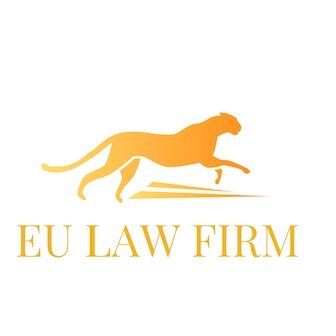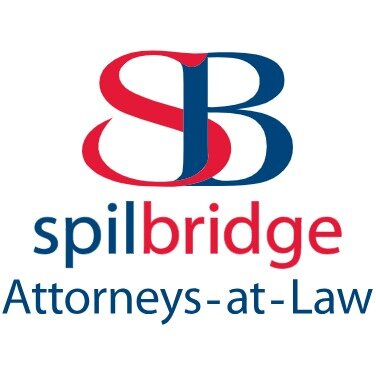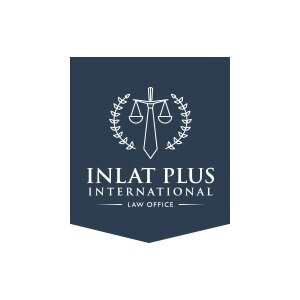Best Employer Lawyers in Latvia
Share your needs with us, get contacted by law firms.
Free. Takes 2 min.
Or refine your search by selecting a city:
List of the best lawyers in Latvia
About Employer Law in Latvia
Employment law in Latvia refers to the body of laws, administrative rulings, and precedents that govern the legal rights and obligations of employers and employees. These laws are enforceable under the Latvian Labour Law and other relevant legislations. The Latvian Labour Law is designed to create a balanced employment relationship, upholding principles like fairness, equal treatment, and safe working conditions. Key aspects include employment contracts, working hours, wages, dismissals, occupational safety, and more. Understanding these laws is crucial for both employers and employees to ensure compliance and protection of rights.
Why You May Need a Lawyer
There are several scenarios where someone involved in employment, whether an employer or employee, might seek legal counsel. Common situations include:
- Drafting and reviewing employment contracts to ensure compliance with Latvian laws.
- Advising on matters of discrimination or wrongful termination claims.
- Assistance with layoffs, restructurings, or mass redundancies to adhere to statutory requirements.
- Guidance on issues related to collective bargaining agreements or employee disputes.
- Litigation support in cases where matters have escalated to court proceedings.
- Understanding obligations regarding health and safety regulations.
- Support during work-related injury claims or workplace misconduct issues.
- Consultation on wage disputes or overtime compensation claims.
- Assistance in compliance with data protection and employee privacy laws.
- Interpreting the legal implications of cross-border employment issues.
Local Laws Overview
Latvia's employment laws outline various rights and responsibilities for both employees and employers. Key aspects include:
- Employment Contracts: Contracts in Latvia must be written, detailing key terms such as compensation, work period, and job description.
- Working Hours: The standard workweek is 40 hours, with provisions for overtime pay if exceeded.
- Minimum Wage: The government sets a statutory minimum wage that must be observed by all employers.
- Termination of Employment: The law provides detailed procedures that must be followed for lawful termination, including notice periods and severance pay.
- Non-discrimination: Employers must ensure equal treatment across various spectrums, including gender, age, disability, ethnicity, and more.
- Occupational Health and Safety: Employers are obliged to maintain safe work environments and comply with health standards.
- Collective Agreements: These are negotiated agreements between employers and trade unions that may modify certain employment terms.
Frequently Asked Questions
1. What is the standard length of a probationary period in Latvia?
The probationary period in Latvia is generally up to three months unless otherwise stated in the employment contract.
2. Is maternity leave available in Latvia?
Yes, Latvian law provides maternity leave of 112 calendar days, which can be extended under special circumstances.
3. Can employment contracts be verbal in Latvia?
Employment contracts in Latvia are required to be in written form to be legally valid and enforceable.
4. What is the minimum notice period for terminating employment?
The minimum notice period for terminating employment varies; generally, it is one month, but it may depend on the terms in the employment contract.
5. Are employees entitled to paid vacation?
Yes, each employee legally has the right to four weeks of paid annual leave in Latvia.
6. How is overtime calculated?
Overtime is compensated at 100% of the employee’s hourly rate on top of their regular salary.
7. What are the duties of employers regarding workplace safety?
Employers must ensure a safe working environment and comply with the state's occupational health and safety regulations.
8. Can employers directly deduct wages from salaries?
Employers in Latvia cannot make direct deductions from salaries unless legally permissible, such as tax obligations or under a court order.
9. Are there laws regulating remote work in Latvia?
There are no specific remote work laws, but standard labor laws apply, including health and safety and work hours regulation.
10. How does the law treat discrimination at the workplace?
Discrimination in the workplace, based on gender, age, race, disability, and other factors, is strictly prohibited under Latvian law.
Additional Resources
Those seeking more information or legal assistance can refer to these resources:
- The Ministry of Welfare of the Republic of Latvia - Offers guidance and resources related to employment laws.
- State Labour Inspectorate - Provides enforcement and compliance resources for workplace safety and regulations.
- Latvian Chamber of Commerce and Industry - A valuable tool for businesses seeking guidance on employment regulations.
- Trade unions or employee rights groups - Can offer support and information for employment-related concerns.
Next Steps
If you require legal assistance with employment-related issues, consider the following steps:
- Identify your specific legal issue and gather all necessary documentation related to your case.
- Seek recommendations or research attorneys specializing in employment law in Latvia.
- Schedule consultations with potential lawyers to discuss your case and their experience.
- Evaluate the lawyer’s expertise, communication style, and fee structure to ensure they meet your needs.
- Communicate clearly your objectives and be proactive in providing any supporting information to your legal counsel.
Lawzana helps you find the best lawyers and law firms in Latvia through a curated and pre-screened list of qualified legal professionals. Our platform offers rankings and detailed profiles of attorneys and law firms, allowing you to compare based on practice areas, including Employer, experience, and client feedback.
Each profile includes a description of the firm's areas of practice, client reviews, team members and partners, year of establishment, spoken languages, office locations, contact information, social media presence, and any published articles or resources. Most firms on our platform speak English and are experienced in both local and international legal matters.
Get a quote from top-rated law firms in Latvia — quickly, securely, and without unnecessary hassle.
Disclaimer:
The information provided on this page is for general informational purposes only and does not constitute legal advice. While we strive to ensure the accuracy and relevance of the content, legal information may change over time, and interpretations of the law can vary. You should always consult with a qualified legal professional for advice specific to your situation.
We disclaim all liability for actions taken or not taken based on the content of this page. If you believe any information is incorrect or outdated, please contact us, and we will review and update it where appropriate.
Browse employer law firms by city in Latvia
Refine your search by selecting a city.
















